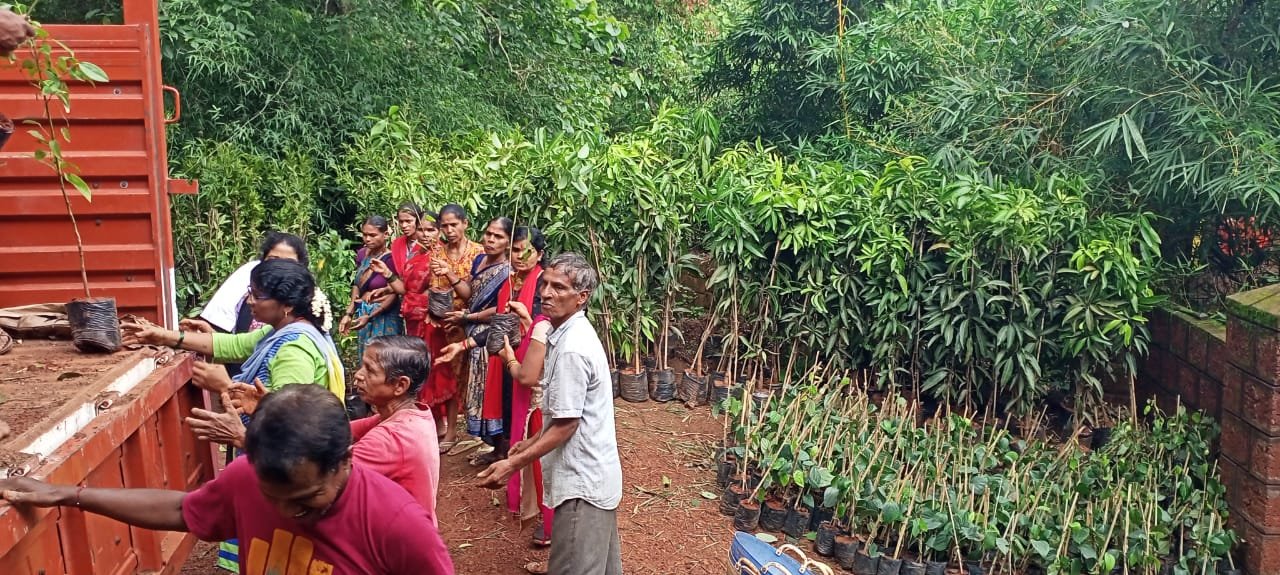Six sleepy villages and towns in the water-stressed area of Western Ghats of India woke up early in the morning on the World Water Day to take the strong messages from UN Water Report released by UNESCO in Hotel Oberoi, New Delhi on 20th March 2015. Organized by TERRE Policy Centre, a think-tank and action-hub of India along with local education institute Choundeshwari Education Institute organized out-of-box water-march with students and people from Rahimatpur, Tandulwadi, Jarewadi, Mangalapur, Mugaon and Chinchali.
While some of them now get water from the water-supply schemes from the government, the villagers that morning went up to the natural source of water outside their habitats, filled their decorated pots with water and paraded it around the villages with placards and slogans from the report of UN Water Day.
‘Conveying the messages emanating from a UNESCO event in posh Hotel in New Delhi where UN water report was introduced in presence of elites, down to the real world of dusty roads in water-thirsty villages has helped the gritty farmers here to begin their journey towards climate resilient rustic-life in coming century’ said Rajendra Shende, Chairman TERRE Policy Centre.
The UN water report highlighted that:
- 750 million people, or more than 1 in 10 of the world's population, still remain without access to an improved water supply
- The world will face a 40 per cent shortfall in water supply in 2030 unless the international community “dramatically” improves water supply management
- Demand for water is slated to skyrocket 55 per cent by 2050 while 20 per cent of global groundwater is already over-exploited
- Water is the very essence of life and yet three-quarters of a billion people – mostly the poor and the marginalized – still today are deprived of this most basic human right
- Climate Change impacts would make the situation worst, particularly in India
Road-side skits and story-telling about conservation of water, worshipping the water collected from nature were some of the activities performed by the students. ‘ It is not only unfair distribution and consumption of water between developed and developing countries is in question. The unequal and undemocratic consumption among rural and urban India will be the deciding factor in future’, said the head of the local government of one of the villages.

